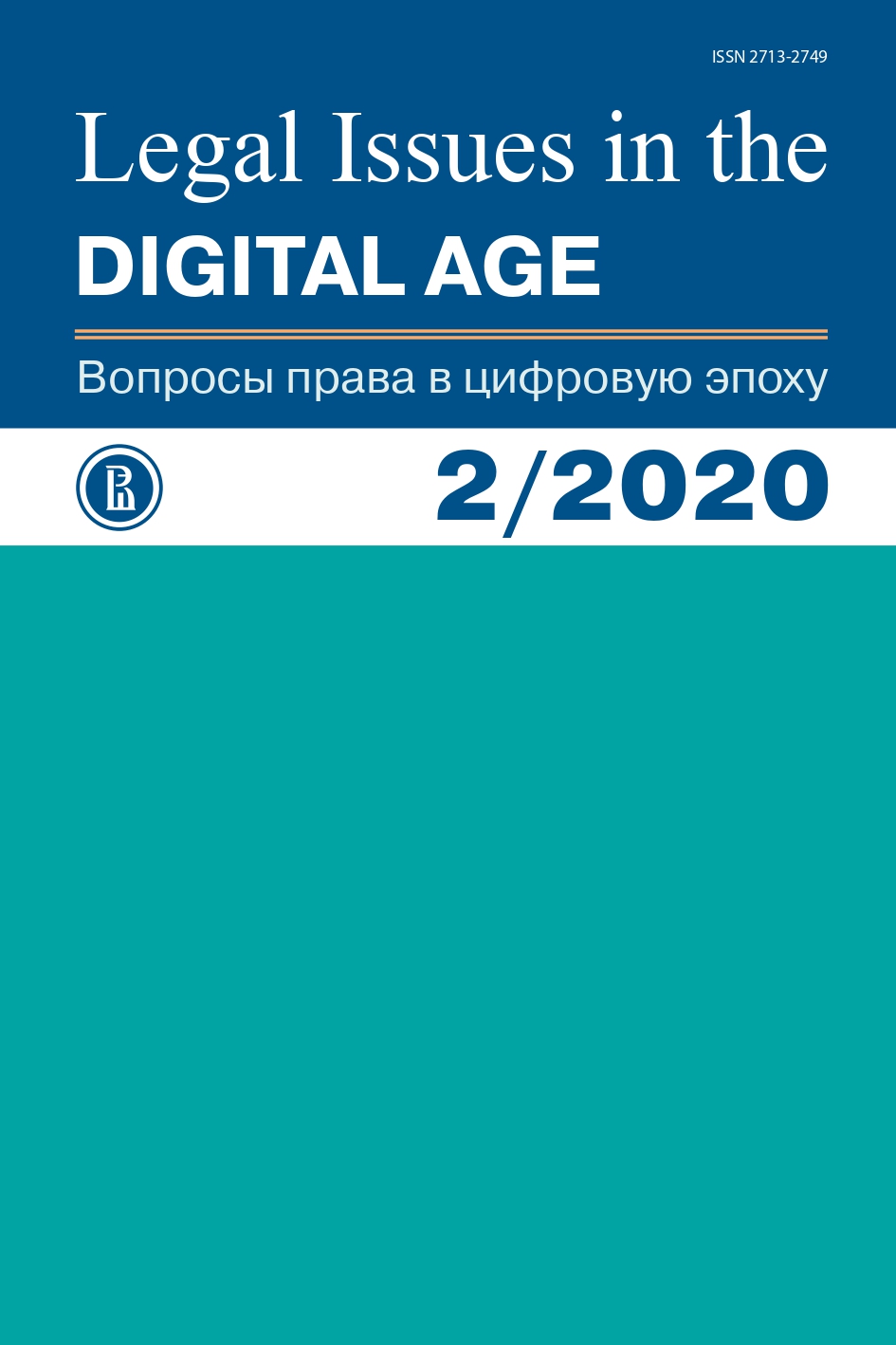E-Customs and Customs Regulation in the Russian Federation
Abstract
The rapid development of information technologies and digitalization of the global economy is compelling the Russian customs service to quickly create an electronic customs system that can coexist alongside the traditional paper customs control. The creation of electronic customs aligns with the development strategies outlined in Presidential Decree No. 204 “On national goals and strategic development tasks of the Russian Federation through 2024” of 7 May 2018. Electronic customs contributes to the development of international cooperation, exports, and an attractive investment climate. The first results of electronic customs are impressive: more than a third of all customs declarations are registered automatically, and more than a quarter of all low-risk declarations are issued automatically with the average release time reduced to about five minutes. The creation of electronic customs is an integral part of the digitalization processes in Russian economy. Customs operations are being automated and modern information and communication technologies are being introduced, and these changes provide significant savings in both time and money. The article discusses new approaches in electronic customs operation: the risk management system, personal accounts for foreign economy actors, and unified personal accounts. It also points out the main difficulties in digitalizing customs operations (lack of preparation for e-customs among Russian organisations, the low level of existing digitalization in many EAEU countries, etc.). All organisations, regardless of their economic clout, may now take advantage of digitized customs operations (reduced customs procession times, lower overhead costs, no appearance in person at customs offices, etc.), but the true winners are small and medium-size businesses, many of which formerly could not bear the high overhead costs associated with customs clearance and control and were in effect barred from accessing foreign markets. The article discusses the main institutions of modern electronic customs, how electronic customs may contribute to effective resistance to corruption in public service, as well as prospects for further digitalization of customs operations.
References
Abramova G.A., Voronina E.A., Goroshkov A.A. (2019) The Сustoms Сode of the EAEU and new rules for collecting customs payments. Tamozhennoe delo, no 3, pp. 3–7 (in Russian)
Aleshkova I.A., Molokaeva O.H. (2019) Dangers of digital development of law: obvious, hidden, imaginary. Konstitucionnoe i municipalnoe pravo, no 8, pp. 41–45 (in Russian)
Arabyan M.S., Gilmanova K.M. (2019) Digitalization as a priority tool of customs administration on the example of the EAEU. Tamozhennoe delo, no 4, pp. 17–21 (in Russian)
Belickaya A.V., Belyh V.S., Belyaeva O.A. et al (2019). Legal regulation of economic relations in modern conditions of digital economy development. Moscow: Yusticinform, 376 p. (in Russian)
Koval V.D. (2018) The concept of corruption in Russian legislation and its main impact on the functioning of the customs system. Administrativnoe pravo i process, no 8, pp. 62–65 (in Russian)
Popondopulo V.F. (2019) Legal forms of digital relations. Yurist, no 6, pp. 29–36 (in Russian)
Romanovskaya O.V., Romanovskij G.B. (2019) Digital technologies and deconcentration of state power. Konstitucionnoe i municipalnoe pravo, no 8, pp. 36–40 (in Russian)
Saurin A.A. (2019) Digitalization as a factor of transformation of law. Konstitucionnoe i municipalnoe pravo, no 8, pp. 26–31 (in Russian)
Sharandina N.L. (2019) The digital economy and the formation of tax culture: legal aspect. Finansovoe pravo, no 10, pp. 25–32 (in Russian)
Tanimov O.V. (2020) Transformation of legal relations in context of digitalization. Aktualnye problemy rossijskogo prava, no 2, pp. 11–18 (in Russian)
Tanimov O.V. (2019) The impact of digital technologies on emergence of new structural elements of the legal system. Rossijskaya yustitciya, no 7, pp. 2–5 (in Russian)
Tregubov A.N. (2020) Improving customs control in the digital economy. Tamozhennoe delo, no 1, pp. 17–19 (in Russian)
Truncevskij Yu.V. (2019) E-corruption or E-anticorruption: the impact of global digitalization. Mezhdunarodnoe publichnoe i chastnoe parvo, no 4, pp. 42–48 (in Russian)
Zubarev S.M. (2020) Legal risks of digitalization of public administration. Aktualnye problemy rossijskogo prava, no 6, pp. 23–32 (in Russian)
Zubarev S.M., Sabaeva S.V. (2020) Legal regulation of digital technologies of state control: experience of the subjects of the Russian Federation. Rossijskaya yustitciya, no 7, pp. 17–21 (in Russian)
Authors who publish with this journal agree to the Licensing, Copyright, Open Access and Repository Policy.










